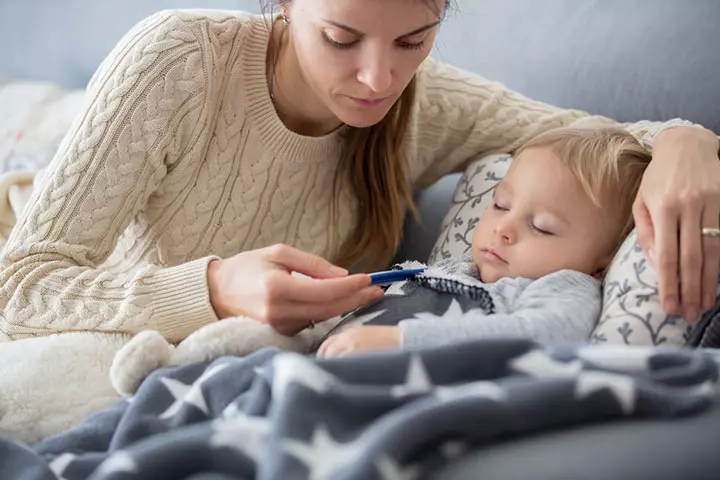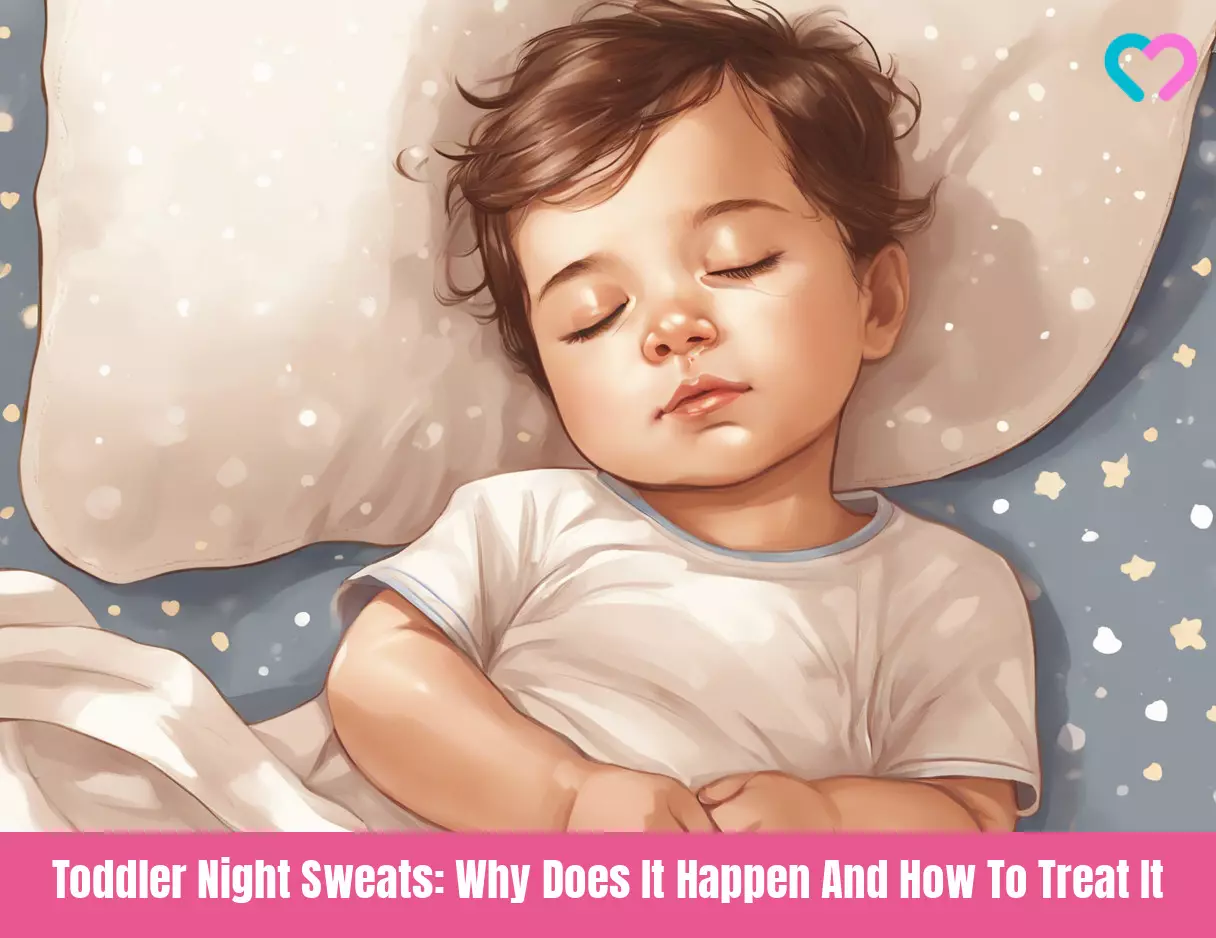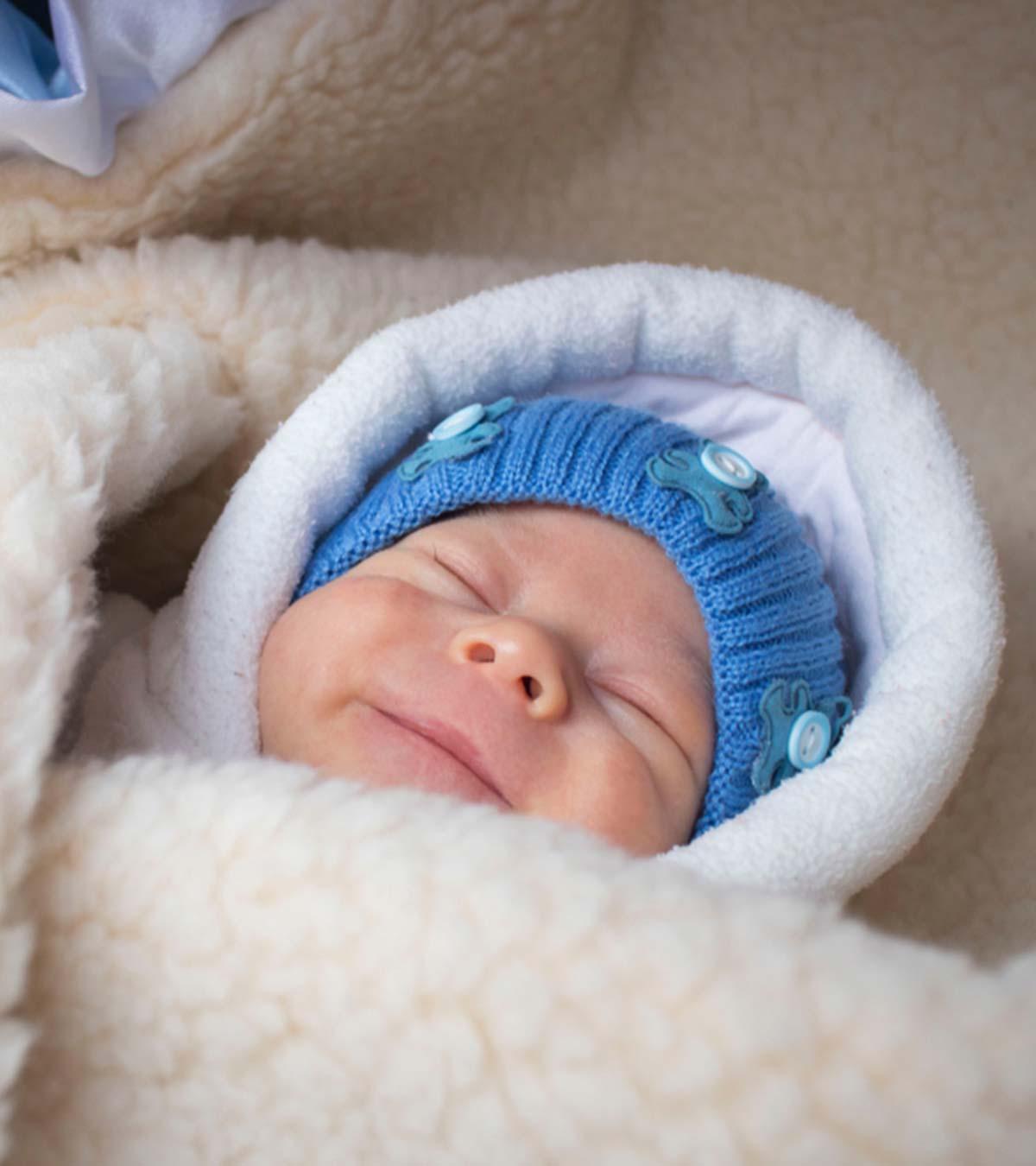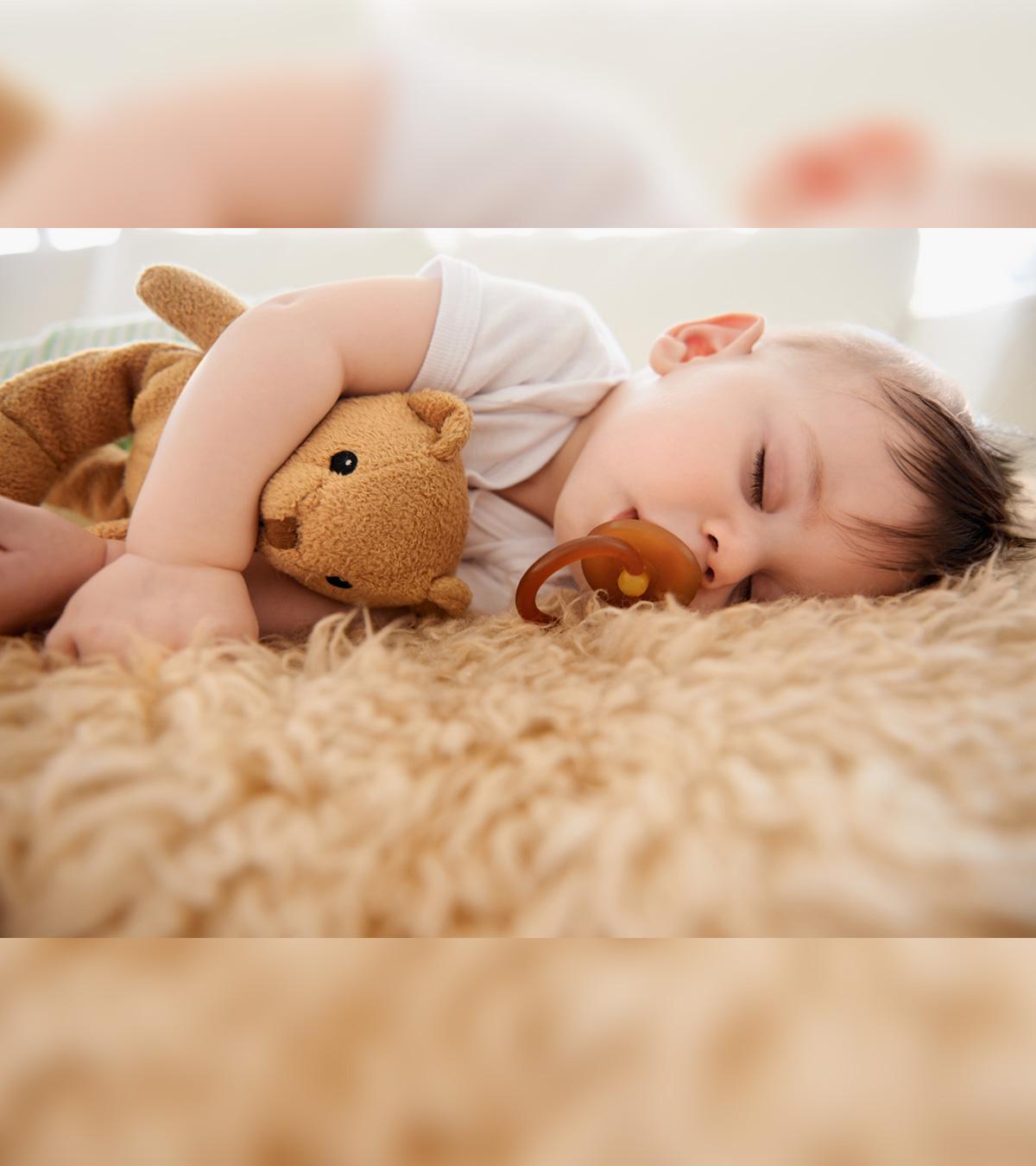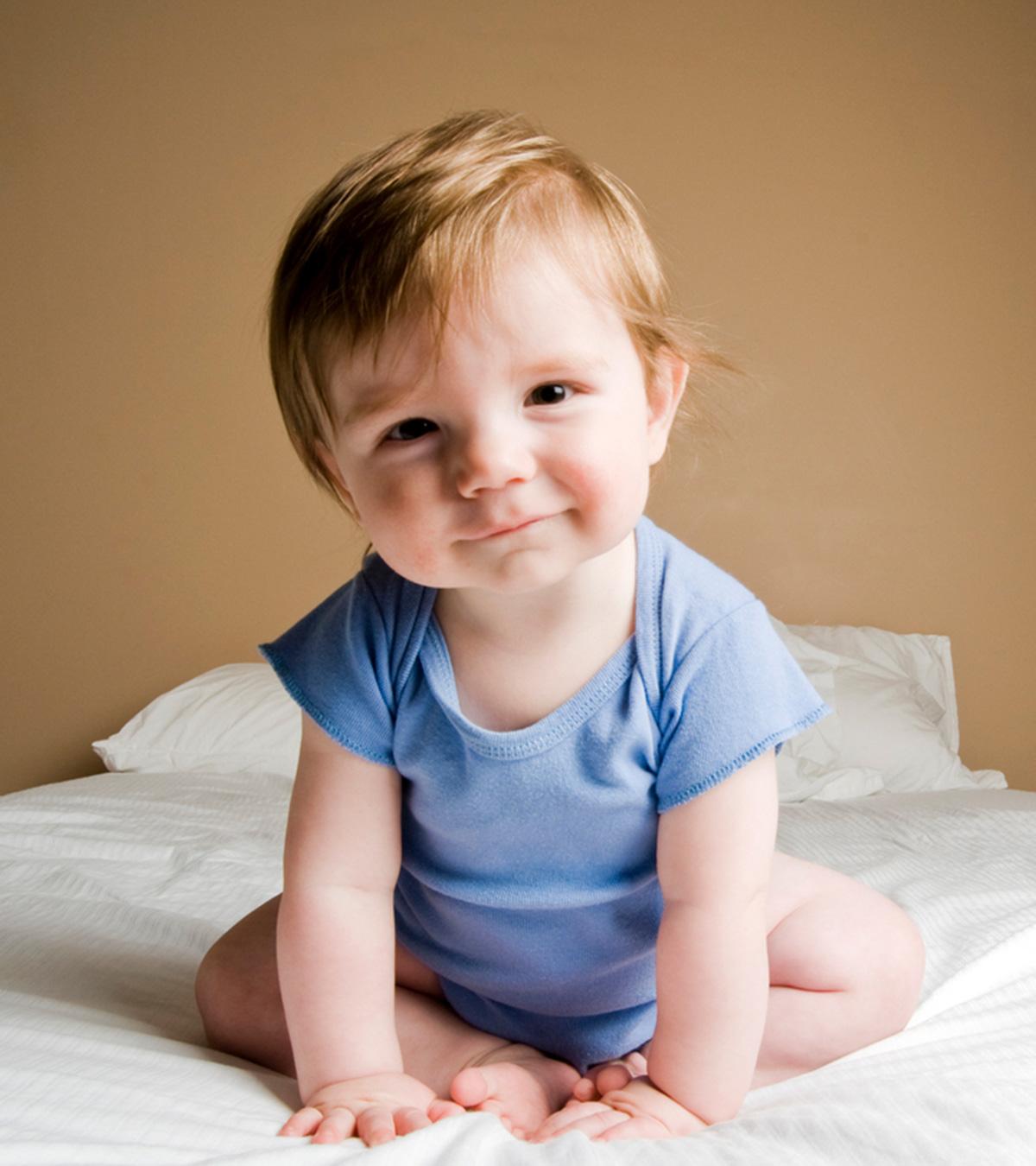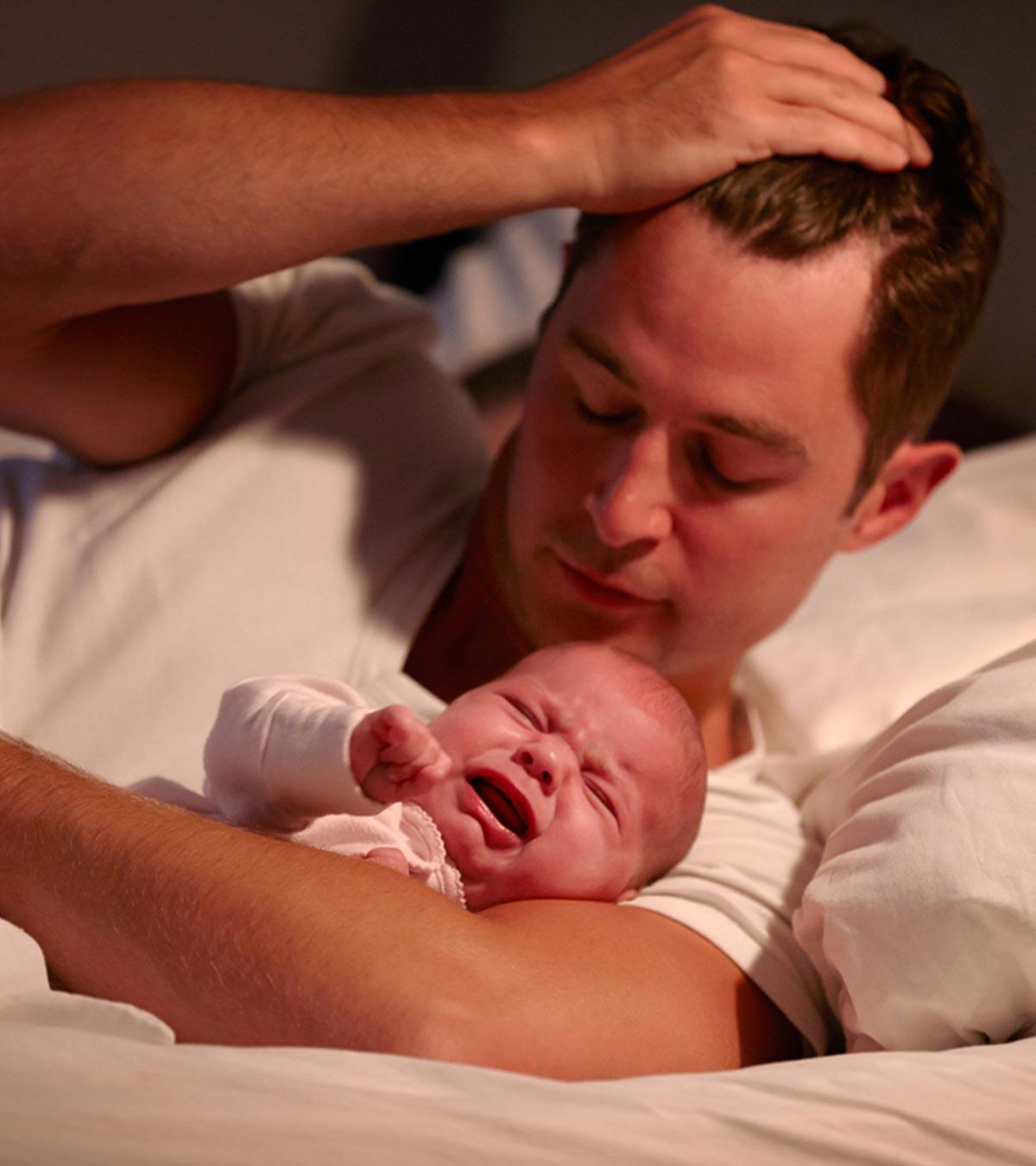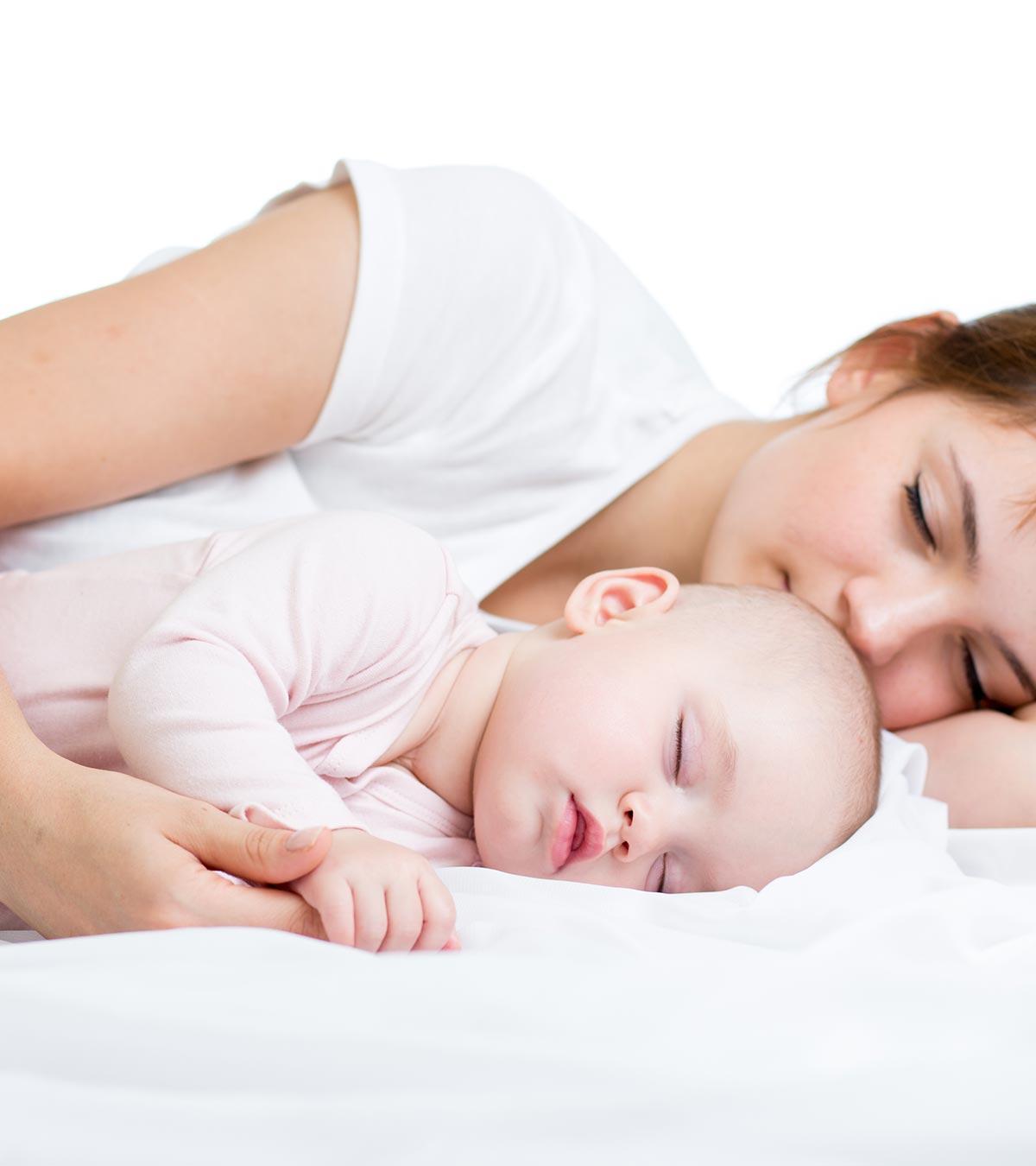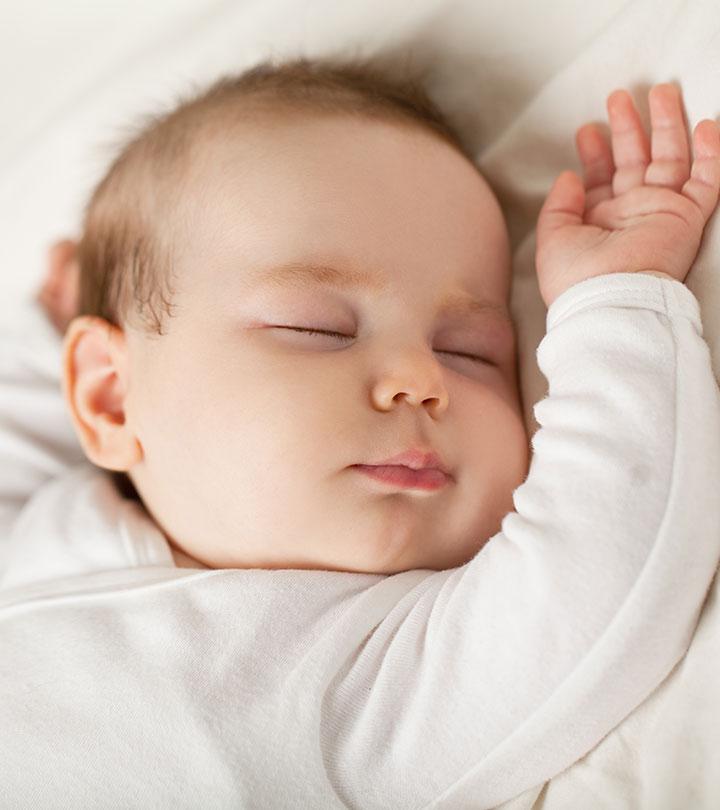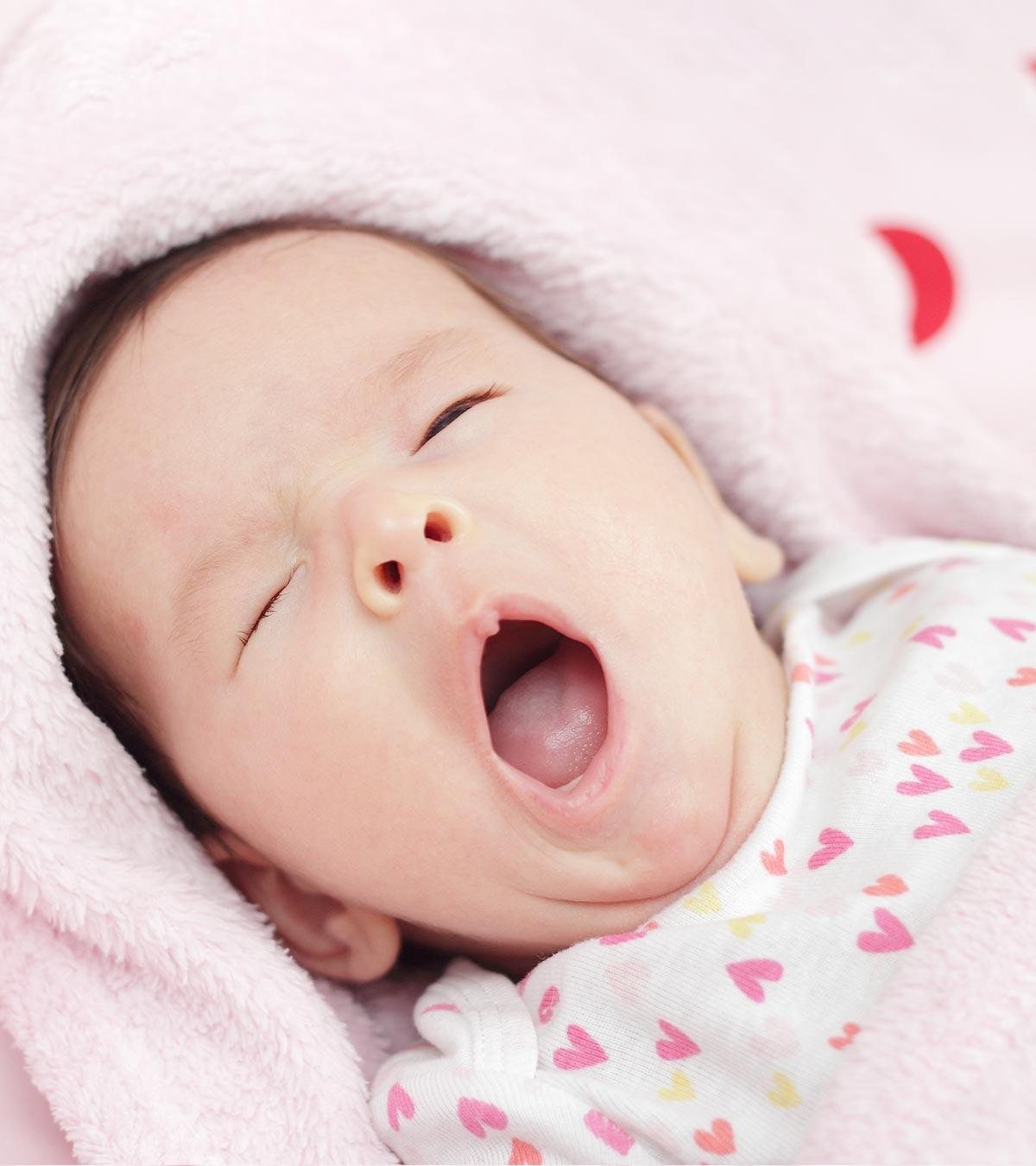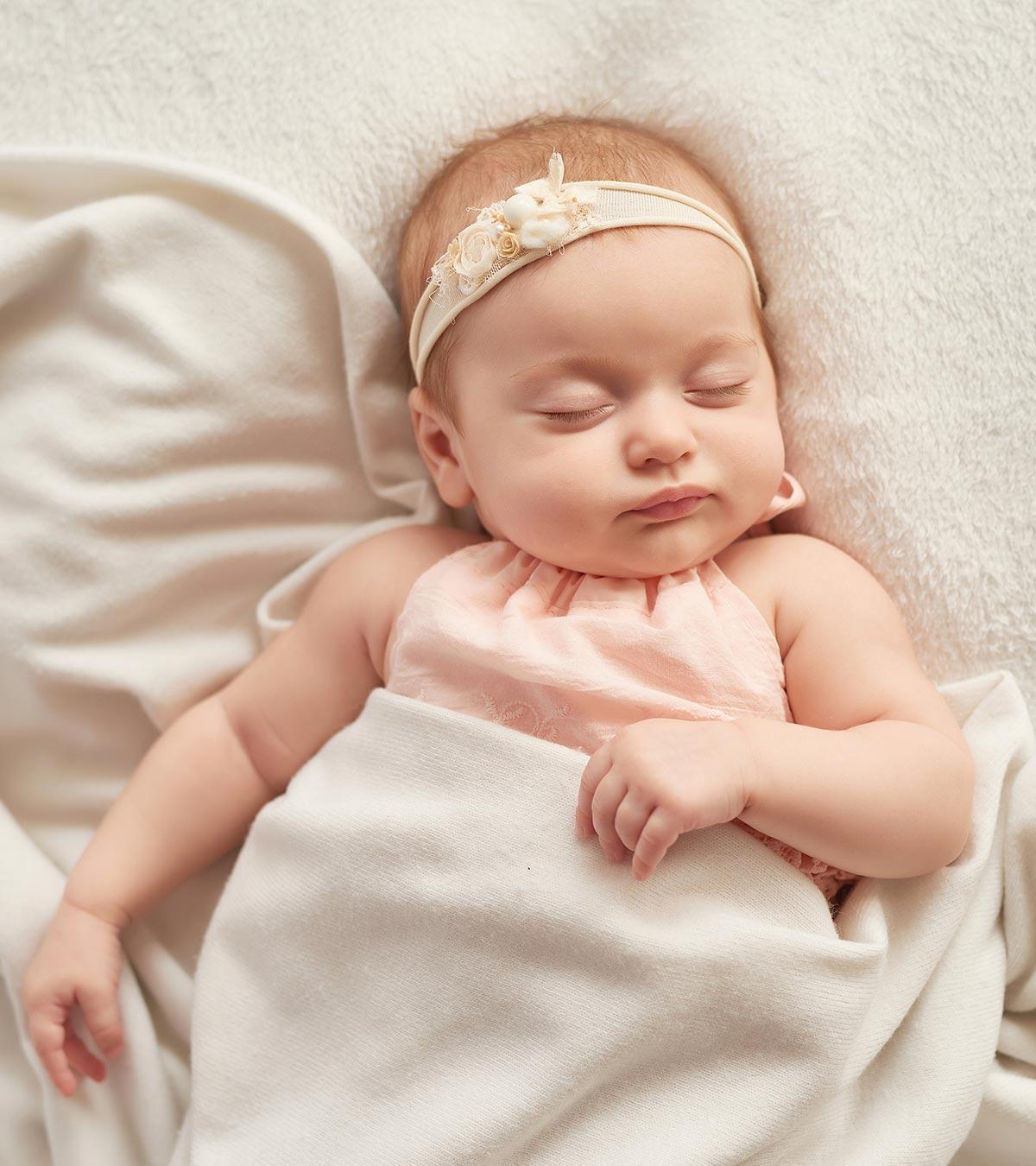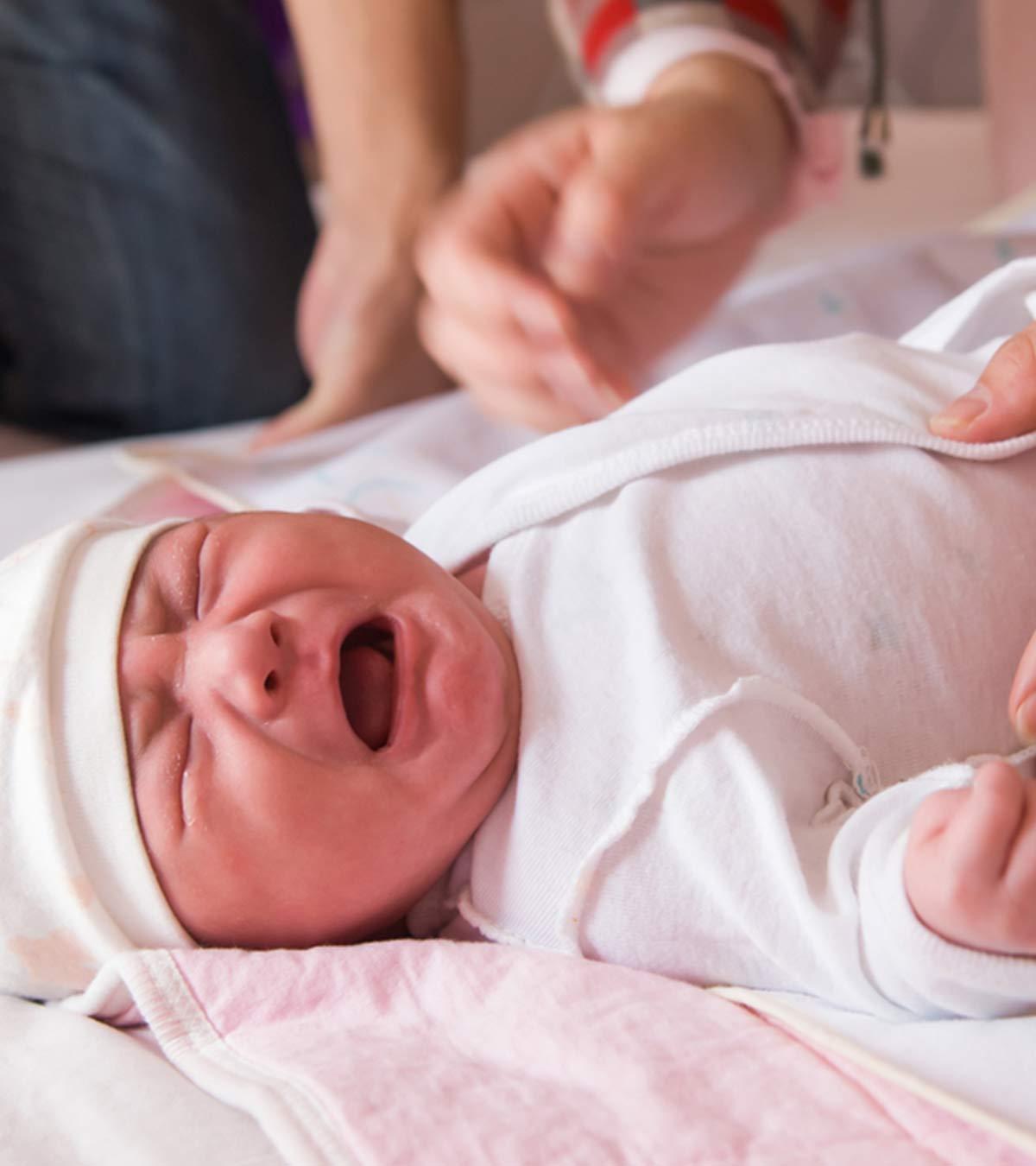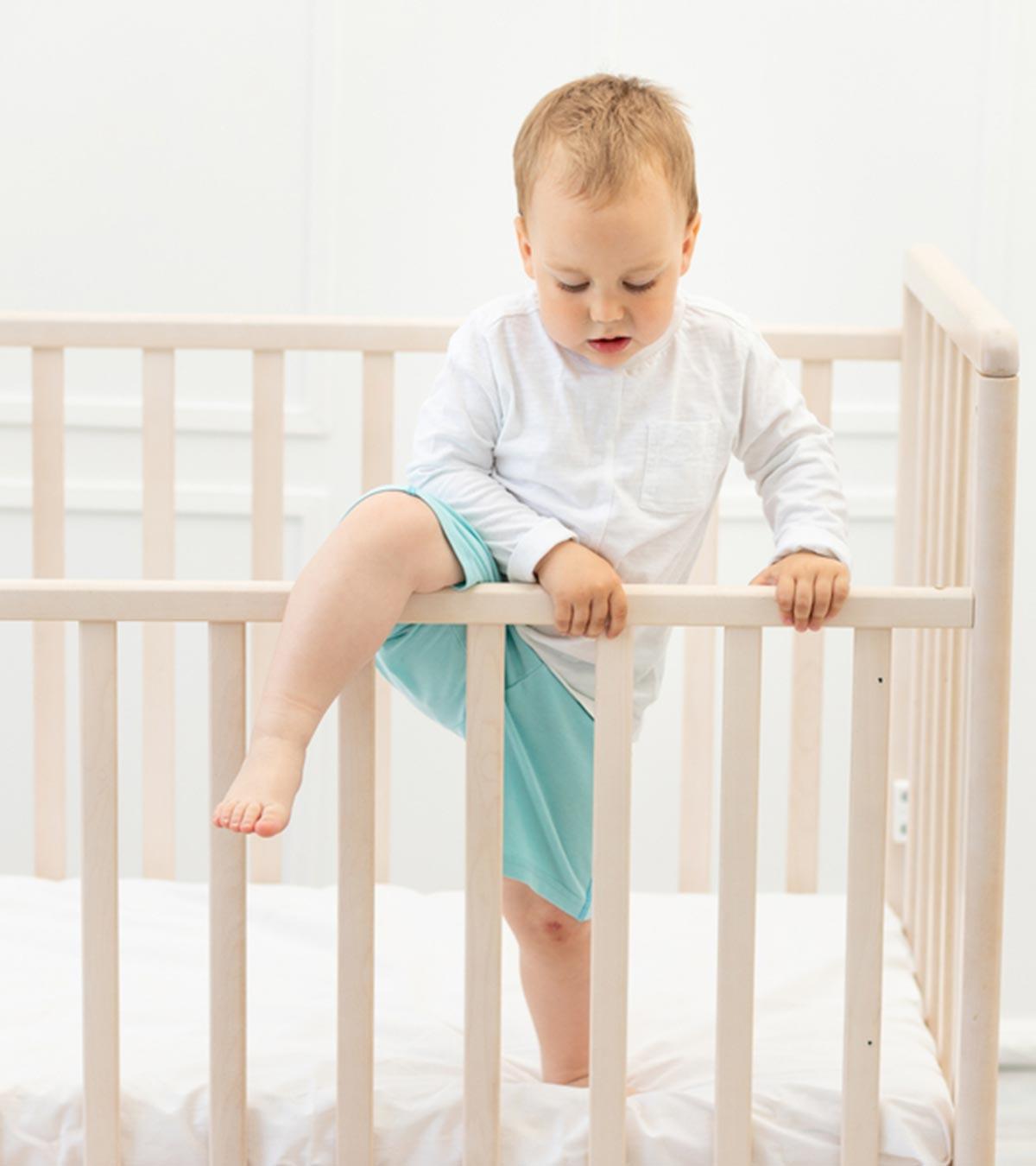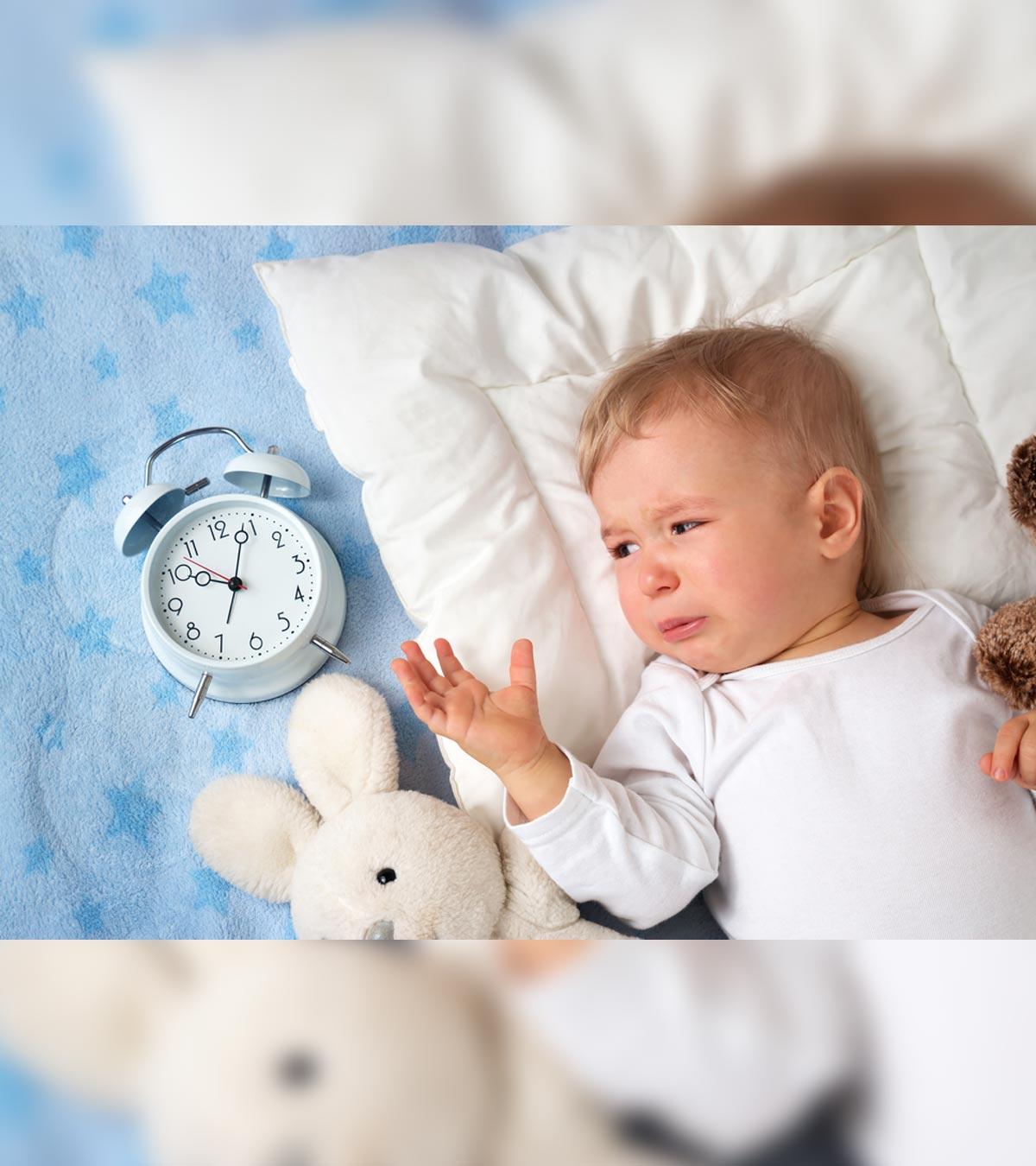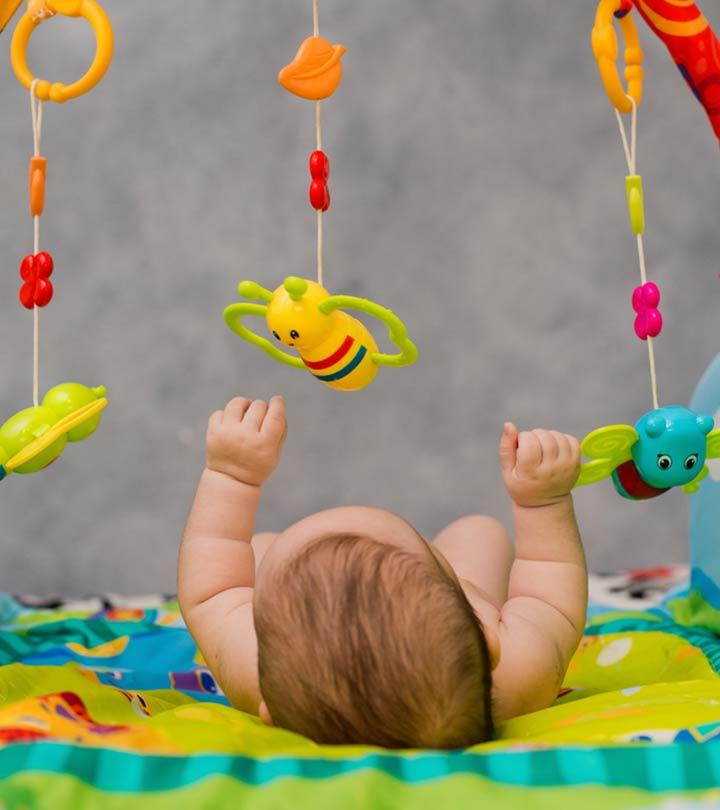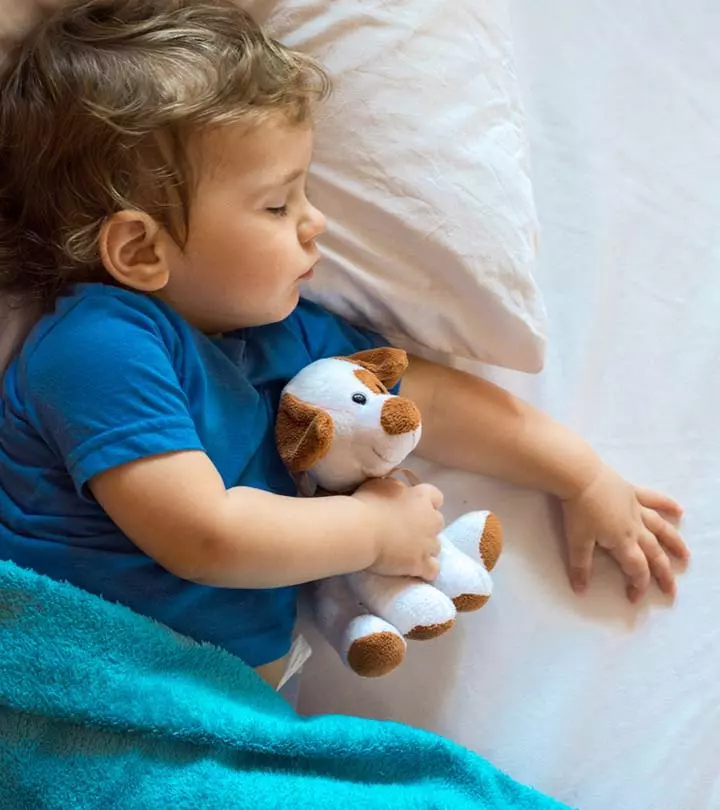
Image: Shutterstock
Episodes of toddler night sweats are quite common. So if your toddler sweats when sleeping, there is nothing to be worried about right away. Excessive sweating at night often helps your toddler maintain their body temperature and bring it back to normal. In medical terms, this phenomenon is referred to as nocturnal hyperhidrosis or sleep hyperhidrosis (1).
It’s important for parents to understand toddler night sweats, as it can help them learn more about their child’s health and comfort during sleep. Read on to know more about night sweats, including their causes and treatment options, and preventive measures you can take.
Key Pointers
- Night sweats in toddlers are a common occurrence and often occur due to overheating, heavy clothing, or bedding.
- However, sometimes night sweats may indicate an underlying medical condition such as sleep apnea or congenital disorders.
- They are usually harmless and can be controlled, but when they are accompanied by other symptoms, medical attention should be sought.
- Monitoring a child’s temperature and hydration levels, keeping their room cool, and using lightweight bedding can help reduce night sweats.
Is It Normal For Toddlers To Sweat While Sleeping?
Toddlers have a high density of sweat glands that activate quickly even, with a gradual rise in ambient temperature (2). The ratio of sweat gland density to the surface area of the skin is also higher than that in adults. It means the density of sweat produced on a toddler’s skin is greater than that of adults.
Sweating often occurs due to increased sympathetic activityiThe body’s involuntary response to stressful or dangerous situations , often a response to infection or flight/fright. This is normal.
Why Does A Toddler Sweat In Sleep?
The high-density sweat glands in toddlers are triggered by various factors
. Here are the causes of night sweats in toddlers:
- Overheating: The environmental temperature of the sleeping area may cause night sweats in toddlers. If the sleeping environment is hot or humid, then it may trigger excessive sweating in toddlers. Binding the child in too many layers of blankets can also make them wake up sweaty in the morning. Sweating due to overheating is normal when there is no fever or any medical condition.
 Quick tip
Quick tip- Fever: A fever can cause night sweats when the body returns to the normal temperature by ridding itself of excess body heat through sweat evaporation (3).
Image: IStock
- Nightmares and night terrors: Fear and active imagination of a toddler may trigger nightmares and night terrors that might cause them to sweat on the face and head, leading to sleep disturbances (4).
- Sleep apnea: Obstructed airway causes temporary suspension of breathing, thus resulting in sleep apnea. One of the several symptoms of this condition in toddlers is excessive nighttime sweating (5). Sleep apnea, or the cessation of breath for a while, may happen due to a range of reasons from benign conditions, such as adenoids (tonsils behind the nose), to respiratory problems or allergies in the lungs. Obesity is also a rising cause of sleep apnea.
- Thyroid problems: Congenital thyroid problems, associated with hormonal changes, can cause hyperthyroidismiWhen the thyroid gland produces more hormones than the body needs , which may lead to cold sweats at night (6).
- Genetic problems: Conditions resulting from defective genes, such as cystic fibrosisiGenetic disease in which organs become clogged by thick mucus , congenital heart problems, and autism spectrum disordersiGroup of developmental disorders that affects a person’s ability to interact with others, learn, or behave (7) (8) (9), lead to night sweats and damp the toddler’s skin.
Image: Shutterstock
Do note that night sweating does not mean that the toddler has the above conditions. There are more prominent symptoms than sweating for such conditions. The best solution is to see a doctor to know the exact cause of night sweating.
When To See A Doctor For A Toddler’s Night Sweats?
See the pediatrician right away when the following conditions accompany night sweating:
- Fever with a temperature above 100.4°F (38°C) (10)
- Body aches, pains, and chills
- Skin rashes and blisters
- Itching of skin
- Vomiting and diarrhea
- Snoring and gasping while asleep
- Weight loss and inadequate diet
Night sweats associated with fever and weight loss could indicate something significant and should be brought to your doctor’s attention. Parents should track these episodes by keeping a sleep diary, recording when they happen, how often, and any other symptoms that come with them. The doctor would arrive at the exact cause after running a few diagnostic tests.
How Are Night Sweats Diagnosed?
Image: Shutterstock
The condition is diagnosed symptomatically. It means the doctor will look for the symptoms to trace underlying conditions such as a fever or presence of some genetic problems. If any suspicious symptoms are detected, the doctor would suggest blood tests and physical examination to determine the fundamental cause of the condition.
Is There A Treatment For Night Sweats In Toddlers?
In cases where an underlying medical problem is causing night sweats, that condition must be treated first. Treatment may depend on various aspects such as the part of the body that’s affected, potential cause, and severity. According to diagnosis, the following procedures may be used to deal with chronic night sweating (11):
- Topical ointments: These contain substances called antiperspirants that block the sweat ductsiTube that carries sweat from the glands to the skin’s surface leading to lesser perspiration. Ointments are applied once every 24 hours before the toddler goes to bed. Topical creams and antiperspirant talcum powders are usually enough to control night sweating in toddlers. The subsequent treatment methods are seldom used.
- Oral medications: These medicines are called anticholinergic agentsiMedication that blocks signals from nerves that direct sweat glands to produce sweat and subdue the quantity of sweat produced. They do not, however, prevent sweating.
- Surgical and other invasive procedures: The nerve impulses to a few overactive sweat glands are permanently blocked through a surgical procedure called thoracic sympathectomy. Other intrusive treatments are electrical therapy and Botox injections. Electrical therapy blocks sweat ducts using electrical impulses, while Botox injections are administered to excessively sweaty parts of the body to suppress sweat production.
The above-mentioned treatments may not be necessary if there is no underlying medical condition causing night sweats. In such a case, you may manage your toddler’s night sweats at home by following some simple steps.
How To Stop Night Sweats In Toddlers?
Here are a few things to manage night sweats due to non-medical reasons:
- Dress the toddler in loose-fitting nightwear to alleviate the chances of sweating. Also, choose natural fabrics such as cotton or linen for toddlers as they facilitate ventilation. Natural fabrics also soak sweat, thus letting it evaporate quickly.
Image: IStock
- Select light bedding and do not tuck the toddler in layers of blankets if he is prone to night sweats. Instead, pick a lightweight blanket or a comfortable bed sheet that is breathable. Avoid pillows that are so soft that the toddler’s head sinks into it, as it limits ventilation near the toddler’s head.
- Keep the room ventilated and regulate the room temperature so that it is not too warm, and there is an adequate flow of air. If it is humid, purchase a dehumidifier, as excess humidity may also make the toddler sweat.
 Quick tip
Quick tip- Manage nightmares and night terrors by maintaining a soothing nighttime routine such as giving a bath and reading a story before bedtime. Use a dim night light in the child’s room to reduce the chances of your toddler waking up at night frightened and sweating.
Image: Shutterstock
- Keep the baby hydrated as night sweats can get severe in summers.
There could be instances when not much of an intervention is required.
What If Your Toddler Has No Health Issues But Still Has Night Sweats?
If your toddler is healthy, happy, and has normal growth even after several nights of excessive sweating, then there is no reason to worry. The ratio of sweat gland to skin surface area improves with growth. Therefore, your little one will outgrow the condition and may not sweat as much during nights when they get older (12).
Frequently Asked Questions
1. What role do stress and anxiety play in toddler night sweats, and how can they be addressed?
Stress in toddlers may cause night terrors, leading to night sweats (15). The stress or restlessness may be due to illness or recent changes at home or with family. Maintaining a regular bedtime routine, having quiet time with toddlers, and practicing de-stressing activities such as belly breathing and imagining peaceful scenes may help children calm down (16) (17).
2. Are there any tips or strategies for preventing toddler bedding and clothing from becoming soaked during night sweats?
Dressing children in moisture-wicking pajamas or using moisture-wicking bed sheets instead of regular cotton materials may help prevent soaking clothes and bedding materials during night sweats.
3. Can certain medications cause night sweats in toddlers?
Yes. Medications such as aspirin and acetaminophen can cause night sweats in toddlers (18).
4. Are there any natural remedies for night sweats in toddlers?
Keeping the room cool, dressing the child in moisture-wicking clothes, and using moisture-wicking bed sheets are some of the most effective remedies for managing night sweats in toddlers.
5. Can night sweats in toddlers affect their quality of sleep or overall health?
No. Normally, night sweats do not affect toddlers’ sleep or health. However, if they have some other accompanying symptoms, such as fever, their sleep, and health might be affected.
6. What vitamin helps with night sweats?
Pediatrician Dr. Bidisha Sarkar says, “Vitamin B6 is a group of six water-soluble vitamins, including pyridoxamine, pyridoxal, and pyridoxine, with similar functions in the body. Each plays a crucial role in metabolism and energy production. Additionally, vitamin B6 helps regulate the body’s hormones which can directly affect night sweats. Studies have shown that supplementing with this vitamin can effectively reduce night sweats in individuals experiencing them.”
Hot and humid weather conditions, fever, or nightmares may cause toddler night sweats. It can be messy as you may need to change the toddler’s clothes and bedding at night. The condition is normal in toddlers and usually resolves as they grow without requiring specific treatment. Switch to light, comfortable blankets and loose and breathable night clothes for your child. Maintain ambient temperature and humidity in the room. However, look out for other symptoms, such as fever, body aches, rashes, or weight loss that may indicate something abnormal. It is advisable to get a pediatric consultation whenever you feel it is necessary.
Infographic: Why Does A Toddler Sweat When Sleeping?
Fever or increased body temperature might cause sweating in toddlers, and there are other reasons as well. If your toddler is sweating excessively while sleeping, it is important to monitor their temperature and contact a doctor if necessary. Refer to the following infographic for a list of possible causes. To help their body regulate its temperature, ensure they are hydrated and getting enough fluids. Illustration: Momjunction Design Team
Illustration: Toddler Night Sweats: Why Does It Happen And How To Treat It
Image: Stable Diffusion/MomJunction Design Team
You may be concerned if your baby sweats a lot when sleeping, but doesn’t have a fever. Watch this informative video to learn why this may occur and how you can best deal with it to ensure that your baby is comfortable.
References
1. Staff Perspective: Night Sweats – About Nocturnal Hyperhidrosis; Uniformed Services University (2014)
2. Falk B; Effects of thermal stress during rest and exercise in the pediatric population.; National Center For Biotechnology Information (1998)
3. Ioanna Fragkandrea et al.; Signs and Symptoms of Childhood Cancer: A Guide for Early Recognition; American Academy of Family Physicians (2013)
4. Jodi Mindell; Children and Bedtime Fears and Nightmares; National Sleep Foundation (2010)
5. Obstructive Sleep Apnea in Children; Cleveland Clinic
6. Anthony J. Viera; Diagnosing Night Sweats; American Academy of Family Physicians (2003)
7. Health Topics; University of Iowa Hospitals and Clinics
8. Symptoms that Might Indicate a Heart Problem; Children’s Hospital of Philadelphia
9. Investigating Sleep Behaviors in Autistic Infants; University of San Diego
10. Signs and Symptoms of Fever; American Academy of Pediatrics (2015)
11. Hyperhidrosis; Children’s Hospital of Philadelphia
12. C. Carolyn Thiedke; Sleep Disorders and Sleep Problems in Childhood; American Academy of Family Physicians (2001)
13. How To Dress Your Child for Sleep; Sleep Foundation
14. What’s the Best Temperature for Sleep?; Cleveland Clinic
15. Night Terrors; Nemours
16. Sleep Terrors and Sleepwalking; Nationwide Children’s Hospital
17. How to recognize signs of distress in children; UNICEF
18. Diagnosing Night Sweats; American Academy of Family Physicians
Community Experiences
Join the conversation and become a part of our nurturing community! Share your stories, experiences, and insights to connect with fellow parents.
Read full bio of Dr. Kondekar Santosh
- Dr. Bidisha Sarkar is a pediatrician with nine years of experience. She did her graduation in Medicine from NRS Medical College, Kolkata and holds specialization in Pediatrics. Dr. Sarkar currently practices at KIMS Hospital in Hyderabad, India.
 Dr. Bidisha Sarkar is a pediatrician with nine years of experience. She did her graduation in Medicine from NRS Medical College, Kolkata and holds specialization in Pediatrics. Dr. Sarkar currently practices at KIMS Hospital in Hyderabad, India.
Dr. Bidisha Sarkar is a pediatrician with nine years of experience. She did her graduation in Medicine from NRS Medical College, Kolkata and holds specialization in Pediatrics. Dr. Sarkar currently practices at KIMS Hospital in Hyderabad, India.
Read full bio of Rohit Garoo
Read full bio of Dr. Ritika Shah
Read full bio of Vidya Tadapatri





